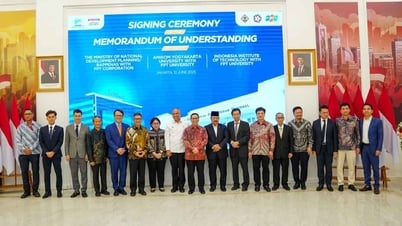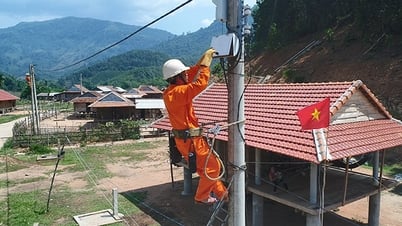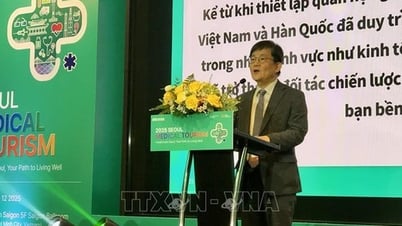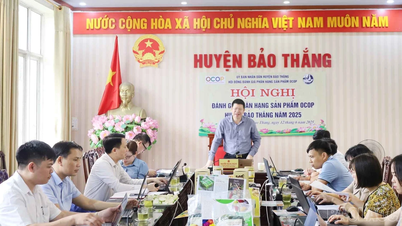The Ministry of Industry and Trade has just issued Decision No. 1568/QD-BCT, approving the National E-commerce Development Master Plan for the 2026–2030 period. The plan is built on the view that e-commerce is a pioneering field, playing a key role in the process of transforming the growth model, promoting competitiveness and sustainable development of the digital economy.
In the coming period, e-commerce will be closely linked to major strategies such as the National Digital Transformation Program, the Digital Economy and Digital Society Development Strategy, as well as specialized projects of the Ministry of Industry and Trade. The focus is on optimizing the entire value chain from production to consumption through technological solutions, aiming to balance economic growth, social equity and environmental protection.
One of the outstanding orientations of the plan is to organize the e-commerce development space in a synchronous and effective manner nationwide, combined with promoting regional connectivity and international integration. The State plays a facilitating role through the construction of institutions, policies and digital infrastructure, while businesses and consumers are the main forces promoting the sustainable development of e-commerce.

The national e-commerce development master plan for the 2026–2030 period sets a target of 70% of businesses applying e-commerce by 2030.
Notably, the plan sets a target that by 2030, 70% of the adult population will participate in online shopping; e-commerce retail sales will grow by 20-30% per year and account for about 20% of total national retail sales of goods. Along with that are specific targets for business development: 70% of businesses apply e-commerce, 100% of transactions have electronic invoices, 80% of transactions are cashless, and 60% of small and medium enterprises operate on digital platforms.
The plan also demonstrates the determination to narrow the development gap between regions, with the goal of 50% of B2C e-commerce transactions taking place outside Hanoi and Ho Chi Minh City, 60% of communes having traders participating in online sales, and promoting the exploitation of specific advantages of each region in production, logistics and human resources serving e-commerce.
Green and sustainable development is an important pillar of this plan, demonstrated by the commitment to reduce the rate of plastic packaging to a maximum of 45%, increase the recycling rate to 50%, and promote the use of clean energy in e-commerce logistics, with at least 40% of businesses participating, and 50% of businesses applying green packaging standards.
Regarding human resource development, the plan targets 60% of university and vocational training institutions teaching e-commerce-related majors; at the same time, organize skills training for at least 1 million people, including businesses, individuals and state officials.
To realize the above ambitious goals, the master plan clearly identifies major orientations such as perfecting institutions, developing digital infrastructure and logistics, building core technology platforms to serve state and market management, promoting regional connectivity, improving application capacity in the business community and people, along with expanding international cooperation to access advanced technology and global markets.
Source: https://doanhnghiepvn.vn/chuyen-doi-so/kinh-te-so/den-2030-70-doanh-nghiep-se-ung-dung-thuong-mai-dien-tu/20250610112231642


![[Photo] President Luong Cuong talks on the phone with South Korean President Lee Jae Myung](https://vphoto.vietnam.vn/thumb/1200x675/vietnam/resource/IMAGE/2025/6/13/eee54a4c903f49bda277272b1dda68e8)




























































































Comment (0)